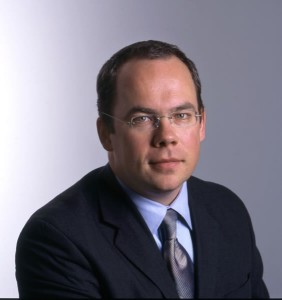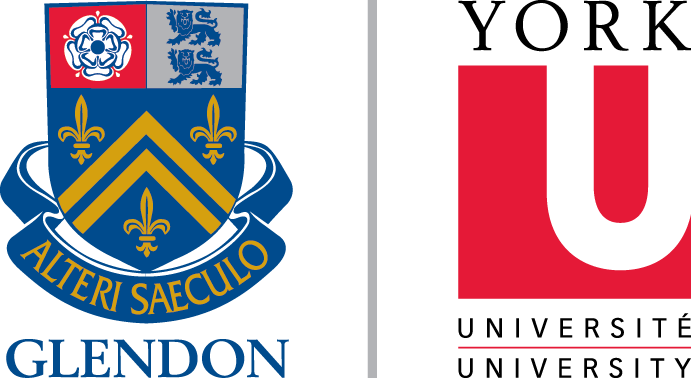In September, The Glendon College School of Public and International Affairs started its activities again in full force. This included the return of a stimulating format for students: a two-hour weekly colloquium held each Thursday afternoon on the theme “Canada and its place in the world.” Each conference allows the School’s students to interact with distinguished guests, journalists, politicians, diplomats, high-ranking civil servants, researchers, etc., on themes related to public and international affairs.
 To launch the 2012-2013 season, the School welcomed well-known journalist and Maclean’s columnist Paul Wells on September 20th. His visit was well-timed, just a few days after a minority PQ government was elected in Quebec. Paul Wells, who is well acquainted with Quebec politics, addressed this subject with the School’s students, together with Professor Francis Garon, who contributed to the colloquium and debate. The journalist reminded students of the longstanding “Blue” or conservative political tradition in Quebec but which was left without a formal organization to carry it. The creation of the ADQ (Action démocratique du Quebec) party that is known today as the Coalition for Quebec’s Future led by François Legault has provided such an organization to this part of the electorate.
To launch the 2012-2013 season, the School welcomed well-known journalist and Maclean’s columnist Paul Wells on September 20th. His visit was well-timed, just a few days after a minority PQ government was elected in Quebec. Paul Wells, who is well acquainted with Quebec politics, addressed this subject with the School’s students, together with Professor Francis Garon, who contributed to the colloquium and debate. The journalist reminded students of the longstanding “Blue” or conservative political tradition in Quebec but which was left without a formal organization to carry it. The creation of the ADQ (Action démocratique du Quebec) party that is known today as the Coalition for Quebec’s Future led by François Legault has provided such an organization to this part of the electorate.
Paul Wells also stressed the negative perception of the Anglo-Quebecois community towards the Parti Québécois’ platform. Mr. Wells believes that they see the platform as challenging previously unspoken assumptions from recent decades or providing balance on the language issue in Quebec, even if it is as an outright rejection. However, Professor Garon reiterated that the distinction must always be made between political discourse of the day and real political action in this area. Moreover, he noted that we must remember the uncontrollable nature of the Parti Québécois.
In short, this first weekly colloquium was a success and the interaction amongst the students was quite positive. Mr. Garon noted that the majority of students speak English as their mother tongue, but have mastered the French language quite well given that the School of Public and International Affairs requires proficiency in both official languages. The event allowed a rich discussion between the “two solitudes”, among Francophone and Anglophone speakers, which is always particularly interesting and provides unique perspectives on the subject matter.
Readers who are interested in Paul Wells’ comments on the September 4th election can read more on the (Maclean’s website).
By Michel Héroux


